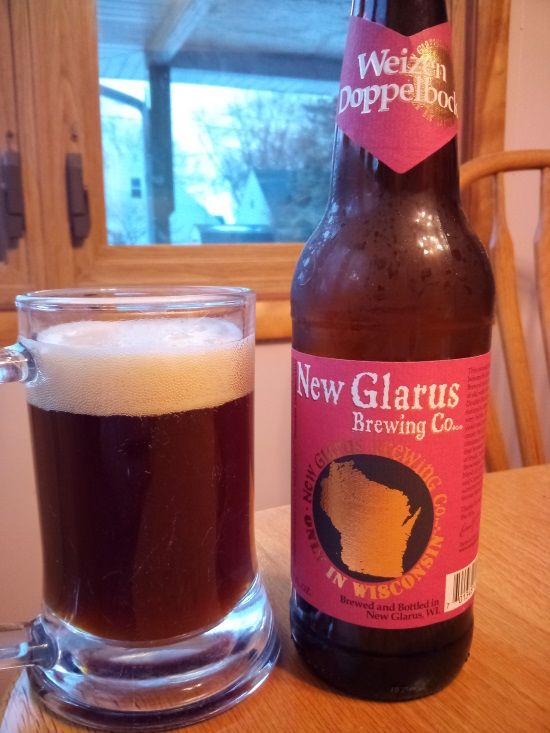Back in 2021, New Glarus Brewing bid good riddance to the worst of the pandemic and its lockdowns with Gyrator, a doppelbock that eased me into winter with a rush of malty goodness and a nice buzz. Apparently others were similarly smitten and we collectively made Gyrator into a hit. Well, as big a hit a New Glarus beer that isn't Spotted Cow can be, I guess.
Realizing they had stumbled onto something good, Dan Carey and his brewhouse minions (with the blessing of Deb Carey, of course) went the doppelbock route again last fall and loosed Weizen Doppelbock upon us late in the autumn.
The weizen doppelbock is, as far as I know, a bigger, chewier, more potent version of the venerable hefeweizen/weissbier, a.k.a. - the German wheat bier. The style involves boiling a bunch of wheat that has been bolstered with some barley and then letting the resulting proto-bier mingle with a particular type of yeast that poops out tasty phenols and esters that your tongue thinks are like banana, clove, bubble gum, et al. Today I learned that this yeast strain is called Torulaspora delbrueckii. I suppose a weizen doppelbock is just this formula with more ingredients.
While hefeweizens are fairly common, their doppelbock cousins are not. When it comes to this style, I immediately think of Tap 6: Mein Avenitus from the German brewery Schneider Weisse - G. Schneider & Sohn. It is the platonic ideal of a weizen doppelbock from a brewery that turns the popular drink into an art form. They seem to have weissbier in their blut and brew various takes on the style: cloudy, clear, bocky, eisbocky, extra hoppy, aged in wine barrels, und so weiter.
In addition to increasing my yeast knowledge today, I have also learned that the name "Aventinus" refers to the Bavarian historian of that same name, a.k.a. - Johannes Turmair, who lived from 1477-1534. Now, why the bier was named after him is as of yet unknown to me. Perhaps it's just a tribute to a local boy who done good for himself.
For their part, New Glarus seem to have taken a cue from Tap 6. Their weizen doppelbock appears to be rather traditional, if the text on the bottle is to be believed. No mention of added fruit nor the use of experimental hops; no kveik-torulaspora hybrid yeast for that Norwegian farmhouse weizen taste.


No comments:
Post a Comment